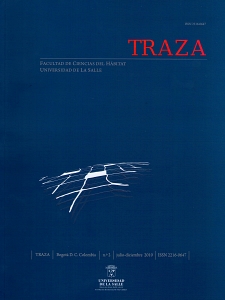Abstract
The urban evolution of thought has a great transition to midtwentieth century, in response to the complexity of cities in consolidation and growth, resulting from the dynamics of the Second World War. In the early twentieth century town planning in the West promoted in their theoretical assumptions, ideologies and references of Continental Europe, as the Town Planning British and American, among others, the need for more interdisciplinary interventions, comprehensive and systemic city to Finally to achieve the best possible welfare for man, this article advances the process of identifying some relationships between the postulates and urban models that emerged to address the dynamics of the city from the 50s, which tried to overcome the vision functionalist urbanism in the first half of the twentieth century, even revisiting some of the structural proposals of the social sciences and the articulation of views from different disciplines such as biology, spatial economics, geography, ecology and phenomenology, among others , dealing with this new urban complexity. At the end of this review should identify those conceptual integrative urban proposals from the sixties to promote the consolidation of approaches to the city interventions such as sustainable cities and urban and environmental design for the improvement of urban living and quality of life.Downloads
Download data is not yet available.



